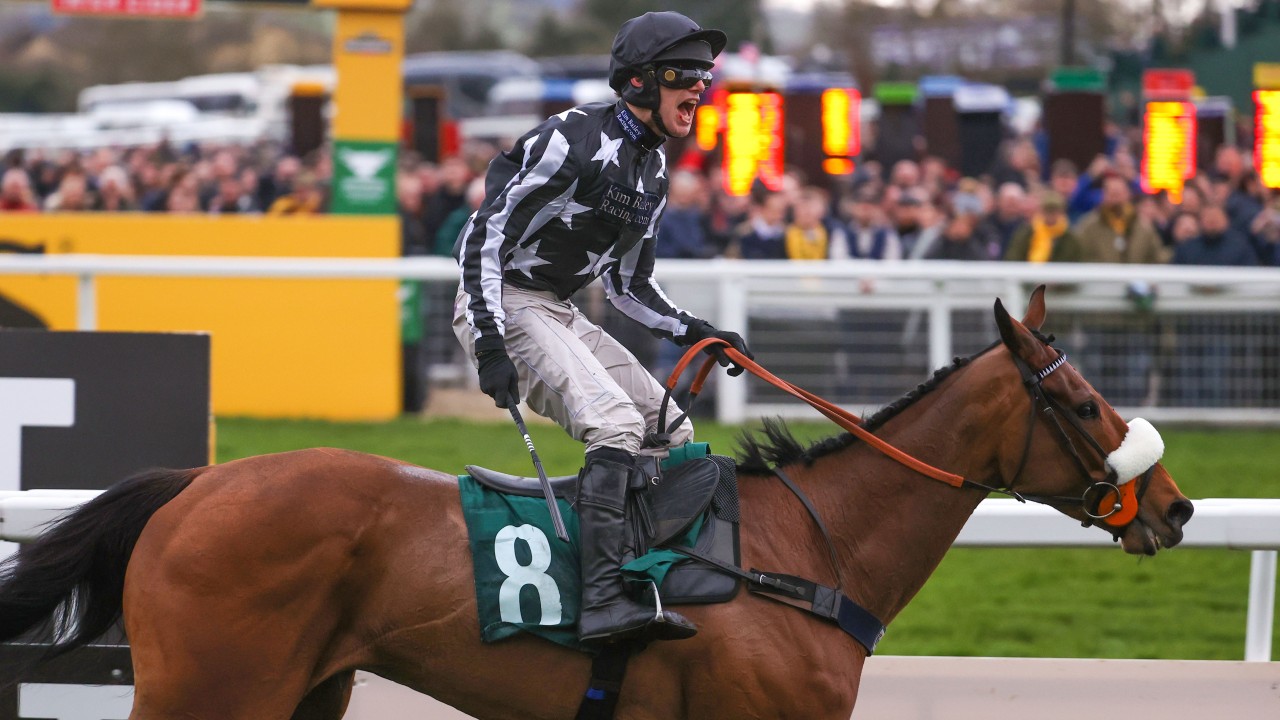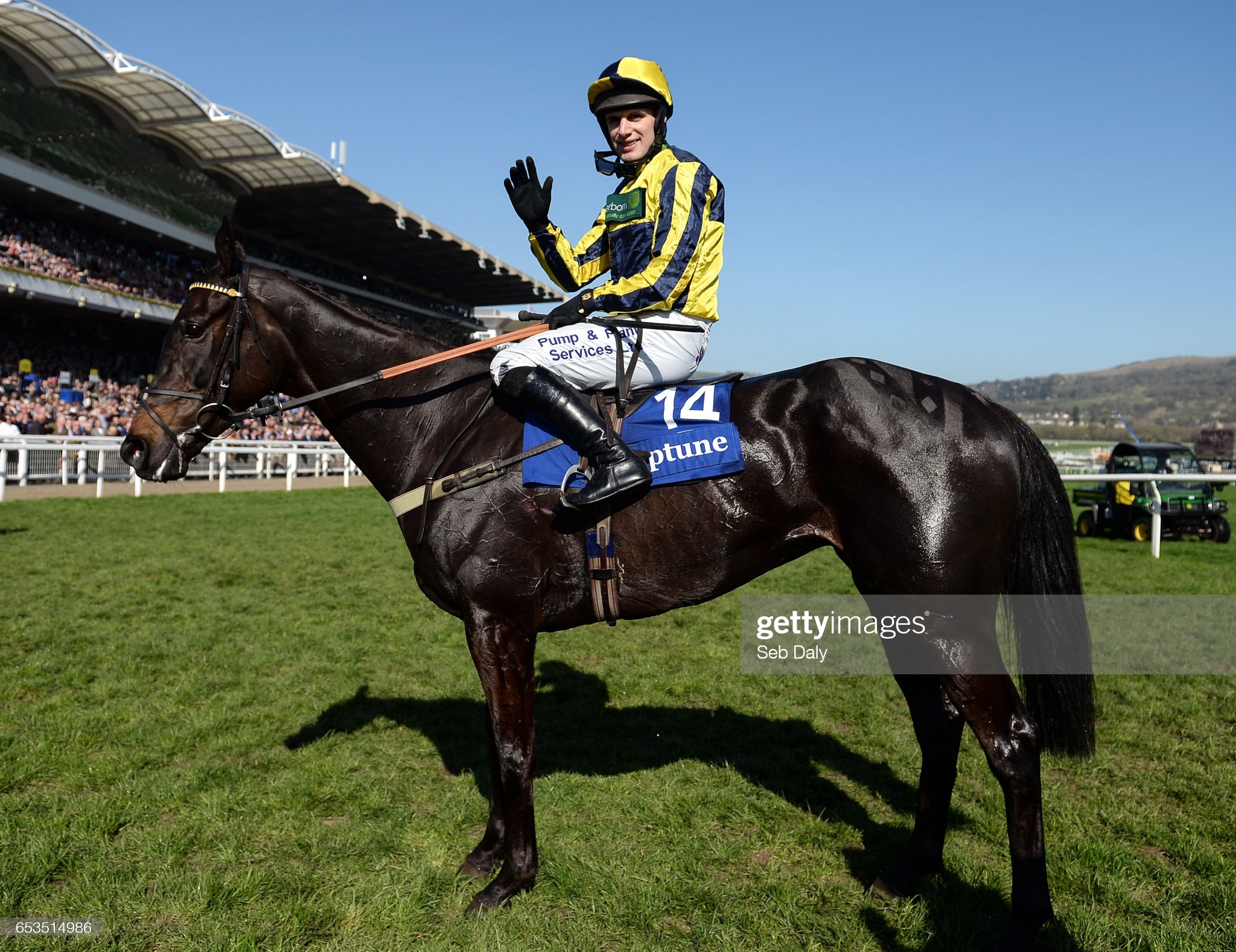David Bass: “Racing Is So Far Behind On Mental Health”

The racing world was in mourning in February and June of this year following the suicides of James Banks and Liam Treadwell. Both were very able jockeys; indeed Treadwell was a 2009 Grand National winner.
However, after long periods struggling with the pressures of racing and taking to other means of escape, they took their own lives.
David Bass, a 32-year old jockey who is on course to have a career-best season this term, knows all too well about the mental struggles that come with the profession,
“We’ve lost two jumps jockeys this year from suicide which is really sad and racing needs to change. Because we have a mental health problem in our sport linked to both drink and drugs.
After Liam’s death I tried to speak to as many jockeys as possible about their mental wellbeing.”
Bass, a double Grade One winning jockey for trainer Ben Pauling, looked to set up a podcast on mental health in racing with Sky Sports and ITV Racing presenter Matt Chapman during the summer, but he unfortunately got injured and the project was put on hold.
The Swindon-based man was intent on speaking about overcoming his own mental struggles in the aftermath of finishing an ‘agonising second in racing’s greatest showpiece, the Grand National, aboard The Last Samurai in 2016.
“I was very depressed after that to the point I was ill. I went and saw someone though who I still see now and it has helped massively. I promise you though, when I first went, I didn’t want anyone to know; and that’s the point.
“It’s not something you do in racing. It’s seen as a weakness and that must change.”
A Profession Like No Other
There is not many sports globally where the competitor (the jockey) loses more than in horse racing. Bass this season has ridden 44 winners from 207 rides: so for every winner he has ridden, he will have lost three more. Factor in that every time a jockey rides a race he is under the microscope performing in front of an audience.
When most people make a mistake, it is rarely seen; when a jockey makes a mistake, it is rarely unseen.
Then there is the racing schedule – if you can call it that: almost 360 days of racing, flat and national hunt with a few days respite up to Christmas.
Like any normal human being, jockeys like David Bass need a break: “With a relentless job like this and the endless pressures, it’s no wonder that jockeys have been failing drug tests recently. They are mentally spent.
“It is absolutely crazy we don’t have an off-season. There is no other sport like it. We need to have six weeks to at least two months off before we restart again in the autumn.”
Providing jockeys with more off time and a less strenuous schedule would certainly have an impact on promoting good mental health. The Professional Jockeys Association isn’t blind to the issue either and has confidential helplines set up for those that need support. When it comes to mental health issues in all walks of life, talking and speaking out helps.
But, says, the ever-busy Bass: “I needed therapy to understand how to live with being an addict of adrenaline and being busy. I needed to figure out why I am like I am. Therapy as opposed to sports psychology would be helpful to many current jockeys.”

From Stage To Course
The very idea of becoming a jockey did not enter a young Bass’ mind until he was 16. From a family of classical musicians, he was bred to perform in Royal Albert Hall. It was a trip to Stratford racecourse with his father, who loved going racing, that peaked an interest in Bass that had been dormant for most of his teenage years.
He went to Newmarket Racing School in 2005 before linking up with Richard Phillips who told him he’d never make it as a jockey.
Eager to prove him wrong, Bass then worked for one of racings great eccentrics , John ‘Mad’ Manners: “He was very entertaining to work for, there was never a dull moment.
“I’d do all the crazy jobs for him, like chasing cows around the countryside and sticking your whole arm up a cow to save a calf.”
All in the name of getting rides that was, which he would soon earn as a claimer with top National Hunt trainer Nicky Henderson. Having worked in a stable with such quality horses like Sprinter Sacre and Bob’s Worth, Bass struggled when he lost his claim and the rides dried up.
That was until he rode his first Cheltenham Festival winner for Kim Bailey aboard Darna in March 2015. From the 2015/16 season on, Bass became Bailey’s new number one man at Thorndale Farm, Cheltenham.
Success was not immediate, but it did come: “The last couple of years we have really stepped it up in terms of quality and we have horse likes Vinndication and Imperial Aura to compete on the big days now.”
With 44 winners and counting already this season, Bass is on course to surpass his career best tally of 55 winners in 18/19, but he leaves the counting to others: “Stats are not the most important thing – I want to keep enjoying it and ride the good horses on the big days because they are hard to come by.”
The positive style in which he rides his mounts has been criticised as reckless. But to any regular observer, there is a beauty, a braveness, a brazenness to how he sees a stride with his companion approaching a fence.
That positive style of riding may well encapsulate Bass as a person: always looking forward but enjoying the ride along the way.

Deeper Lying Issues in Racing
As Bass looks forward and looks to help as many of his colleagues as possible when it comes to mental health. He has a target group in mind: “A lot of the people we work for, old school owners and trainers, have parents who grew up during the war and mental health was never something you talked about.”
It is abundantly clear that there is still a stigma towards mental health in racing and is the reason why, as successful a Point-to-Point and developing National Hunt trainer as he was back in 2018, Richard Woolacott did not feel comfortable speaking out before it was too late.
There is hope though, and Galway Plate winning Irish jockey Marc Enright can testify to that. He knew that his greatest strength was to ask for help, and no one thought any less of him for it.
Everyone has their own way of dealing with setbacks, but for Bass music is his escape: “Whatever mood I’m in, it really helps, I’d be lost without it really.”
Maybe it was an upbringing outside the perils and pressures of the racing world that has made Bass quite an open minded individual. Either way though, he understands his sport has major issues around mental health as yet unresolved.
I, like David Bass, have always loved the sport of horse racing. But if the very sport of which we are so passionate about cannot uphold a duty of care to the people who make it what it is, then where are we going?
It is never too late to end the stigma of mental health in horse racing. People like Bass and Enright prove that.
If you or someone you know is struggling, UK mental health charity Mind maintain a list of helplines and services.
And if you’re reading this from outside the UK, you can find a service near you at CheckPoint.Org.